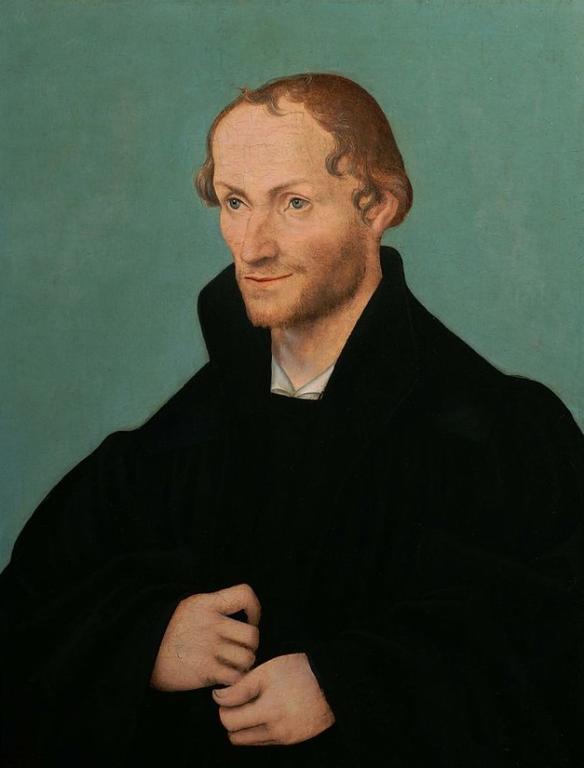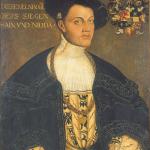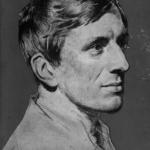
(5-21-06)
***
Philip Melanchthon (1497-1560) was a compatriot of Martin Luther, author of the Augsburg Confession, and Luther’s successor.
***
Historian Philip Schaff:
Calvin’s clear, acute, and independent intellect was in advance of the crude superstitions of his age. He wrote a warning against judicial astrology or divination, which presumes to pronounce judgment upon a man’s character or destiny as written in the stars. This spurious science, which had wandered from Babylon to ancient Rome and from heathen Rome to the Christian Church, flourished especially in Italy and France at the very time when other superstitions were shaken to the base. Several popes of the Renaissance – Sixtus IV, Julius II, Leo X, Paul III were addicted to it, but Pico della Mirandola wrote a book against it. King Francis I dismissed his physician because he was not sufficiently skilled in this science. The Duchess Renata of Ferrara consulted, even in her later years, the astrologer Luc Guaric. The court of Catherine de Medici made extensive use of this and other black arts, so that the Church and the State had to interfere.
But more remarkable is the fact that such an enlightened scholar as Melanchthon should have anxiously watched the constellations for their supposed bearing upon human events. Lelio Sozini was at a loss to know whether Melanchthon depended most on the stars, or on their Maker and Ruler. In this respect Luther, notwithstanding his strong belief in witchcraft and personal encounters with the devil, was in advance of his more learned friend, and refuted his astrological calculation of the nativity of Cicero with the Scripture fact of Esau’s and Jacob’s birth in the same hour. Yet he regarded the comets, or “harlot stars,” as he called them, as tokens of God’s wrath, or as works of the devil . . .
Nothing of this kind is found in Calvin. He denounced the attempt to reveal what God has hidden, and to seek him outside of his revealed will, as an impious presumption and a satanic delusion. It is right and proper, he maintains, to study the laws and motions of the heavenly bodies. True astronomy leads to the praise of Gods wisdom and majesty; but astrology upsets the moral order. God is sovereign in his gifts and not bound to any necessity of nature. He has foreordained all things by his eternal decree . . . In conclusion he rejects the whole theory and practice of astrology as not only superfluous and useless, but even pernicious . . .
Calvin might have made his task easier if he had accepted the heliocentric theory of Copernicus, which was known in his time, though only as a hypothesis.
But in this matter Calvin was no more in advance of his age than any other divine. He believed that “the whole heaven moves around the earth,” and declared it preposterous to set the conjecture of a man against the authority of God, who in the first chapter of Genesis had pointed out the relation of the sun and moon to the earth. Luther speaks with contempt of that upstart astronomer who wishes to reverse the entire science of astronomy and the sacred Scripture, which tells us that Joshua commanded the sun to stand still, and not the earth. Melanchthon condemned the system in his treatise on the “Elements of Physics,” published six years after the death of Copernicus, and cited against it the witness of the eyes, which inform us that the heavens revolve in the space of twenty-four hours; and passages from the Psalms and Ecclesiastes, which assert that the earth stands fast and that the sun moves around it. He suggests severe measures to restrain such impious teaching as that of Copernicus. (History of the Christian Church, Vol. VIII: Modern Christianity, 135. “Calvin and the Astrologers”)
On the other hand, he [Luther] doubted the calculations of astrology. “I have no patience with such stuff,” he said to Melanchthon, who showed him the nativity of Cicero from the stars. “Esau and Jacob were born of the same father and mother, at the same time, and under the same planets, but their nature was wholly different. You would persuade me that astrology is a true science! I was a monk, and grieved my father; I caught the Pope by his hair, and he caught me by mine; I married a runaway nun, and begat children with her. Who saw that in the stars? Who foretold that? Astronomy is very good, astrology is humbug. The example of Esau and Jacob disproves it.” (Ibid., Vol. VII, Modern Christianity, 78. “Luther’s Home Life”)
Related reading:
St. Augustine Held that Astrology is Demonstrably Absurd
Did St. Thomas Aquinas Accept Astrology?
Science vs. Religion? 16th-17th Century Astronomers Loved Astrology
Early Protestant Hostility Towards (and Ignorance of) Science
***
Photo credit: Portrait of Martin Luther & Portrait of Philippe Melanchthon (1546; Melanchthon portion only), by Lucas Cranach the Younger (1515-1586) [public domain / Wikimedia Commons]
***












